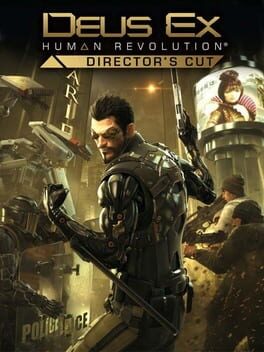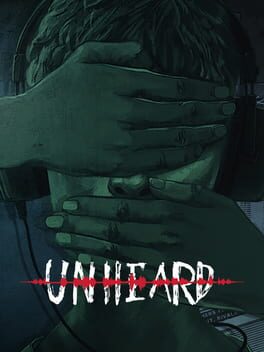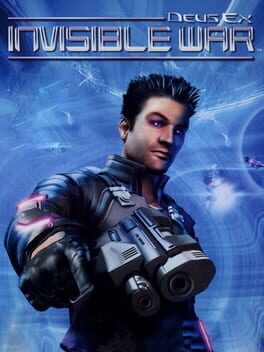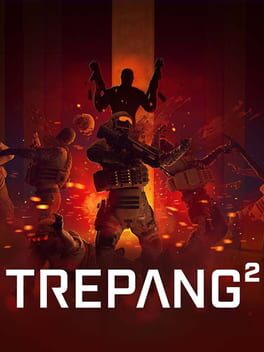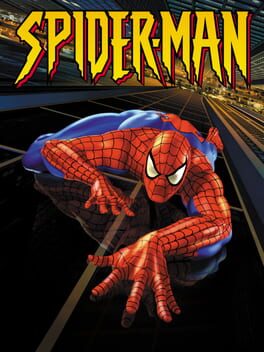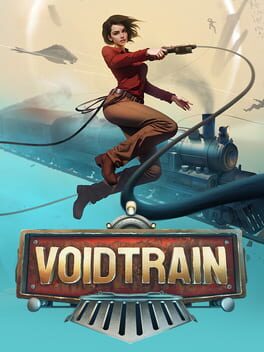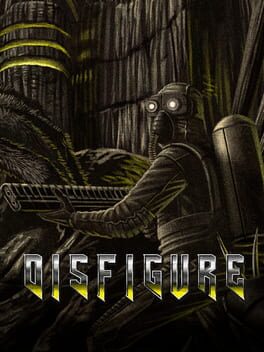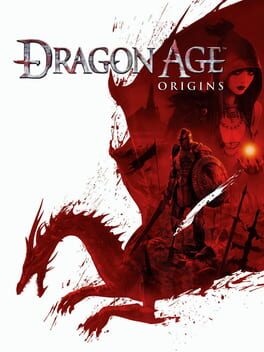Deus Ex: Human Revolution is a captivating blend of action, role-playing and stealth developed by Eidos Montreal and released in 2011. Set in a cyberpunk future the game delivers a rich narrative with deep philosophical themes offering players an immersive experience that seamlessly blends storytelling with gameplay mechanics.
Set in the year 2027 (awfully close jesus fuck) Deus Ex presents a visually stunning world where human augmentation has become a reality dividing society into factions that either embrace or reject this technological advancement. The games environments from the bustling streets of futuristic cities to the shadowy depths of clandestine facilities are meticulously crafted, immersing players in a world that feels both familiar and alien.
At the heart of Deus Ex lies a gripping narrative filled with intrigue, conspiracy and moral ambiguity. Players assume the role of Adam Jensen a security officer who becomes embroiled in a global conspiracy after a devastating attack leaves him augmented against his will. As Jensen unravels the truth behind the conspiracy players are confronted with complex ethical dilemmas and philosophical questions about the nature of humanity and the consequences of unchecked technological progress.
One of the games standout features is its open ended gameplay approach allowing players to tackle objectives using a variety of playstyles. Whether engaging in intense firefights using stealth to avoid detection or employing diplomacy to navigate tense situations players have the freedom to shape the outcome of the story through their choices and actions. The augmentation system further enhances gameplay allowing players to customize Jensens abilities to suit their preferred playstyle.
Human Revolution excels in its presentation with stylish visuals a haunting soundtrack and expertly crafted sound design that enhances the games atmosphere. The cyberpunk aesthetic is brought to life through sleek futuristic designs while the voice acting and dialogue contribute to the games immersive storytelling experience.
Ups:
Compelling Story: The narrative is thought provoking and engaging filled with twists and turns that keep players on the edge of their seats.
Freedom of Choice: The games open ended approach to gameplay allows for diverse playstyles and encourages experimentation.
Immersive Atmosphere: The meticulously crafted world and atmospheric presentation draw players into the cyberpunk setting making every moment feel cinematic and immersive.
Downs:
Boss Battles: Some of the games boss battles feel out of place and can be frustrating for players who have invested heavily in stealth or nonlethal approaches.
Augmentation Balance: While the augmentation system offers customization options certain augmentations feel underpowered or overshadowed by others limiting their usefulness.
Pacing Issues: At times, the pacing of the game can feel uneven with long stretches of exposition interrupted by sudden bursts of action.
In conclusion Deus Ex Human Revolution is a masterful blend of storytelling and gameplay offering a compelling journey through a dystopian future filled with moral ambiguity and existential questions. Despite some minor flaws the game's strengths far outweigh its weaknesses making it a must play for fans of immersive storytelling and Imsims.
Set in the year 2027 (awfully close jesus fuck) Deus Ex presents a visually stunning world where human augmentation has become a reality dividing society into factions that either embrace or reject this technological advancement. The games environments from the bustling streets of futuristic cities to the shadowy depths of clandestine facilities are meticulously crafted, immersing players in a world that feels both familiar and alien.
At the heart of Deus Ex lies a gripping narrative filled with intrigue, conspiracy and moral ambiguity. Players assume the role of Adam Jensen a security officer who becomes embroiled in a global conspiracy after a devastating attack leaves him augmented against his will. As Jensen unravels the truth behind the conspiracy players are confronted with complex ethical dilemmas and philosophical questions about the nature of humanity and the consequences of unchecked technological progress.
One of the games standout features is its open ended gameplay approach allowing players to tackle objectives using a variety of playstyles. Whether engaging in intense firefights using stealth to avoid detection or employing diplomacy to navigate tense situations players have the freedom to shape the outcome of the story through their choices and actions. The augmentation system further enhances gameplay allowing players to customize Jensens abilities to suit their preferred playstyle.
Human Revolution excels in its presentation with stylish visuals a haunting soundtrack and expertly crafted sound design that enhances the games atmosphere. The cyberpunk aesthetic is brought to life through sleek futuristic designs while the voice acting and dialogue contribute to the games immersive storytelling experience.
Ups:
Compelling Story: The narrative is thought provoking and engaging filled with twists and turns that keep players on the edge of their seats.
Freedom of Choice: The games open ended approach to gameplay allows for diverse playstyles and encourages experimentation.
Immersive Atmosphere: The meticulously crafted world and atmospheric presentation draw players into the cyberpunk setting making every moment feel cinematic and immersive.
Downs:
Boss Battles: Some of the games boss battles feel out of place and can be frustrating for players who have invested heavily in stealth or nonlethal approaches.
Augmentation Balance: While the augmentation system offers customization options certain augmentations feel underpowered or overshadowed by others limiting their usefulness.
Pacing Issues: At times, the pacing of the game can feel uneven with long stretches of exposition interrupted by sudden bursts of action.
In conclusion Deus Ex Human Revolution is a masterful blend of storytelling and gameplay offering a compelling journey through a dystopian future filled with moral ambiguity and existential questions. Despite some minor flaws the game's strengths far outweigh its weaknesses making it a must play for fans of immersive storytelling and Imsims.
2019
While Unheard may not have the flashy graphics or action packed gameplay of other titles its clever mechanics and engaging storytelling make it a standout gem. Whether youre a fan of puzzle games or simply enjoy a good mystery Unheard offers a unique and satisfying gaming experience thats sure to keep you hooked from start to finish.
2021
At its core Inscryption is a card based roguelike with a twist. Players are tasked with building and refining their deck of cards to battle against a series of increasingly challenging opponents. However what sets Inscryption apart is its innovative use of mechanics such as deck manipulation, creature sacrifice, and environmental puzzles. Each battle feels like a carefully orchestrated dance of strategy and wit, as players must constantly adapt their tactics to overcome new obstacles and adversaries.
One of the most captivating aspects of Inscryption is its incorporation of metagame elements. As players progress through the game they uncover layers of hidden secrets and cryptic messages that blur the lines between fiction and reality. The meta narrative woven throughout the game adds an extra layer of depth and intrigue keeping players engaged and eager to uncover the truth behind the games enigmatic world.
Visually Inscryption is a masterpiece of minimalist design. The games hand drawn art style perfectly complements its dark and surreal atmosphere creating a sense of foreboding and unease. Each card and environment is meticulously crafted imbuing the game with a sense of tangible depth and immersion.
Similarly the sound design in Inscryption is superb. From the haunting melodies that accompany players on their journey to the subtle sound effects that punctuate key moments in the game. Every auditory element serves to enhance the overall experience. The combination of visual and auditory elements creates a cohesive and immersive world that draws players in from the very beginning.
Inscryptions narrative is perhaps its most compelling aspect. The games story unfolds gradually as players progress through its various stages revealing snippets of lore and backstory that hint at a much larger and more complex narrative. The writing is top notch with clever dialogue and well developed characters that keep players invested in the unfolding mystery.
However its worth noting that the narrative in Inscryption can be quite dense at times which may not be to everyones taste. Some players may find themselves struggling to piece together the various threads of the story leading to moments of frustration or confusion.
Ups:
Innovative gameplay mechanics that combine deck-building, puzzle solving, and narrative driven elements.
Immersive visuals and sound design that create a dark and surreal atmosphere.
Compelling narrative with well written dialogue and intriguing characters.
Metagame elements add an extra layer of depth and intrigue.
High replay value thanks to procedurally generated levels and hidden secrets.
Downs:
The dense narrative may be off putting to some players.
Steep learning curve may deter newcomers to the genre.
Occasional bugs and technical issues can detract from the overall experience.
Inscryption is a tour de force of game design that pushes the boundaries of what a card based roguelike can be. With its innovative gameplay mechanics, immersive visuals, sound design and compelling narrative it offers a truly unique gaming experience that will linger in the minds of players long after the credits roll. While its dense narrative and steep learning curve may not be for everyone those willing to delve deep into its dark and enigmatic world will find themselves rewarded with a gaming experience unlike any other.
One of the most captivating aspects of Inscryption is its incorporation of metagame elements. As players progress through the game they uncover layers of hidden secrets and cryptic messages that blur the lines between fiction and reality. The meta narrative woven throughout the game adds an extra layer of depth and intrigue keeping players engaged and eager to uncover the truth behind the games enigmatic world.
Visually Inscryption is a masterpiece of minimalist design. The games hand drawn art style perfectly complements its dark and surreal atmosphere creating a sense of foreboding and unease. Each card and environment is meticulously crafted imbuing the game with a sense of tangible depth and immersion.
Similarly the sound design in Inscryption is superb. From the haunting melodies that accompany players on their journey to the subtle sound effects that punctuate key moments in the game. Every auditory element serves to enhance the overall experience. The combination of visual and auditory elements creates a cohesive and immersive world that draws players in from the very beginning.
Inscryptions narrative is perhaps its most compelling aspect. The games story unfolds gradually as players progress through its various stages revealing snippets of lore and backstory that hint at a much larger and more complex narrative. The writing is top notch with clever dialogue and well developed characters that keep players invested in the unfolding mystery.
However its worth noting that the narrative in Inscryption can be quite dense at times which may not be to everyones taste. Some players may find themselves struggling to piece together the various threads of the story leading to moments of frustration or confusion.
Ups:
Innovative gameplay mechanics that combine deck-building, puzzle solving, and narrative driven elements.
Immersive visuals and sound design that create a dark and surreal atmosphere.
Compelling narrative with well written dialogue and intriguing characters.
Metagame elements add an extra layer of depth and intrigue.
High replay value thanks to procedurally generated levels and hidden secrets.
Downs:
The dense narrative may be off putting to some players.
Steep learning curve may deter newcomers to the genre.
Occasional bugs and technical issues can detract from the overall experience.
Inscryption is a tour de force of game design that pushes the boundaries of what a card based roguelike can be. With its innovative gameplay mechanics, immersive visuals, sound design and compelling narrative it offers a truly unique gaming experience that will linger in the minds of players long after the credits roll. While its dense narrative and steep learning curve may not be for everyone those willing to delve deep into its dark and enigmatic world will find themselves rewarded with a gaming experience unlike any other.
Deus Ex: Invisible War, released in 2003, is the sequel to the critically acclaimed Deus Ex, a game that set new standards for player choice and narrative depth in the gaming industry. Developed by Ion Storm, Invisible War attempted to carry forward the legacy of its predecessor while introducing new gameplay mechanics and a fresh storyline. However, its reception among fans and critics has been decidedly mixed. Here's a breakdown of the ups and downs of Deus Ex: Invisible War:
Ups:
Player Choice: True to the spirit of Deus Ex, Invisible War offers players multiple pathways to approach missions and objectives. Whether you prefer stealth, combat, or diplomacy, the game accommodates various playstyles, allowing for a high degree of player agency.
Branching Narrative: The game presents players with morally ambiguous choices that have tangible consequences, shaping the narrative and influencing the game world. Your decisions impact the storyline, leading to multiple endings and encouraging replayability.
Futuristic Setting: Set in a dystopian future ravaged by global conflicts and corporate intrigue, Invisible Wars setting is rich in atmosphere and lore. The game immerses players in a world of advanced technology, conspiracy, and political manipulation, offering a compelling backdrop for the unfolding narrative.
Customization and Augmentations: Invisible War introduces a revamped augmentation system, allowing players to enhance their character with a variety of cybernetic implants. This customization adds depth to gameplay and enables players to tailor their abilities to suit their preferred playstyle.
Downs:
Simplified Gameplay: One of my criticisms against Invisible War is its streamlined gameplay mechanics compared to its predecessor. The game's levels are smaller and less open-ended, limiting exploration and reducing the sense of player freedom present in the original Deus Ex.
Technical Limitations: Released during an era of transition in gaming technology, Invisible War suffers from technical constraints that impact its visual fidelity and performance. Graphical textures appear dated by modern standards, and occasional bugs and glitches can detract from the overall experience.
Narrative Pacing: While the game's branching narrative offers a wealth of choices, I personally found the pacing uneven, with certain storylines feeling rushed or underdeveloped. The games focus on accommodating different playstyles can lead to narrative fragmentation, diluting the impact of key plot points.
Lack of Innovation: Despite its ambitious goals, Invisible War fails to significantly advance the gameplay formula established by its predecessor. While it refines certain mechanics and introduces new features, the game ultimately lacks the groundbreaking innovation that made the original Deus Ex a landmark title.
In conclusion, Deus Ex: Invisible War is a game with both strengths and weaknesses. While it retains the core elements that made its predecessor a classic, it falls short in certain areas, particularly in its simplified gameplay and technical limitations. Nevertheless, fans of the Deus Ex series may still find enjoyment in its branching narrative, player choice, and immersive setting, even if it doesn't quite reach the heights of its predecessor.
Ups:
Player Choice: True to the spirit of Deus Ex, Invisible War offers players multiple pathways to approach missions and objectives. Whether you prefer stealth, combat, or diplomacy, the game accommodates various playstyles, allowing for a high degree of player agency.
Branching Narrative: The game presents players with morally ambiguous choices that have tangible consequences, shaping the narrative and influencing the game world. Your decisions impact the storyline, leading to multiple endings and encouraging replayability.
Futuristic Setting: Set in a dystopian future ravaged by global conflicts and corporate intrigue, Invisible Wars setting is rich in atmosphere and lore. The game immerses players in a world of advanced technology, conspiracy, and political manipulation, offering a compelling backdrop for the unfolding narrative.
Customization and Augmentations: Invisible War introduces a revamped augmentation system, allowing players to enhance their character with a variety of cybernetic implants. This customization adds depth to gameplay and enables players to tailor their abilities to suit their preferred playstyle.
Downs:
Simplified Gameplay: One of my criticisms against Invisible War is its streamlined gameplay mechanics compared to its predecessor. The game's levels are smaller and less open-ended, limiting exploration and reducing the sense of player freedom present in the original Deus Ex.
Technical Limitations: Released during an era of transition in gaming technology, Invisible War suffers from technical constraints that impact its visual fidelity and performance. Graphical textures appear dated by modern standards, and occasional bugs and glitches can detract from the overall experience.
Narrative Pacing: While the game's branching narrative offers a wealth of choices, I personally found the pacing uneven, with certain storylines feeling rushed or underdeveloped. The games focus on accommodating different playstyles can lead to narrative fragmentation, diluting the impact of key plot points.
Lack of Innovation: Despite its ambitious goals, Invisible War fails to significantly advance the gameplay formula established by its predecessor. While it refines certain mechanics and introduces new features, the game ultimately lacks the groundbreaking innovation that made the original Deus Ex a landmark title.
In conclusion, Deus Ex: Invisible War is a game with both strengths and weaknesses. While it retains the core elements that made its predecessor a classic, it falls short in certain areas, particularly in its simplified gameplay and technical limitations. Nevertheless, fans of the Deus Ex series may still find enjoyment in its branching narrative, player choice, and immersive setting, even if it doesn't quite reach the heights of its predecessor.
2004
Garry's Mod, commonly known as GMod, is a sandbox game that has captivated players worldwide for its limitless possibilities and creative freedom. With 2.5k hours invested in this Sandbox, I feel compelled to share my insights into the game's evolution and the transformation of its fanbase over time.
Garry's Mod, developed by Facepunch Studios, stands as a testament to the creativity and ingenuity of its community. The game provides an expansive sandbox environment where players can manipulate objects and create their own worlds using the Source engine. From building elaborate structures to scripting custom game modes, GMod has offered unparalleled freedom and creativity.
Over the course of my 2.5k hours, I have Played countless game modes, helped develop a custom game mode, and took a glance at the diversity of user-generated content. The games modding community is a testament to its enduring appeal, with countless add-ons, maps, and game modes pushing the boundaries of what's possible within the GMod universe.
However, the once-thriving and collaborative community has undergone a noticeable shift over the years. In the earlier days of Garry's Mod, the community was characterized by a passion for creativity, mutual support, and a genuine love for the game. Unfortunately, a perceptible transformation has occurred, as a subset of the community has become more focused on profit and financial gain.
One of the more concerning trends within the GMod community is the emergence of money-driven servers. While there is nothing inherently wrong with individuals seeking compensation for their time and effort, the shift towards overt commercialization has introduced an element of discord. Numerous servers now prioritize pay to win mechanics, creating an uneven playing field that undermines the game's original spirit of creativity and collaboration.
The monetization trend has also impacted the gaming experience itself. Some servers heavily restrict access to certain features or content behind paywalls, limiting the enjoyment of players who may not be willing or able to invest financially. This has led to a fractured player base and a sense of exclusion, detracting from the communal atmosphere that once defined Garrys Mod.
In conclusion, Garrys Mod remains a fantastic sandbox game that has provided me with countless hours of entertainment and creativity. The games vast potential is a testament to the dedication of its developers and the talent within its community. However, the gradual shift towards a more money-driven fanbase is a cause for concern, as it threatens to compromise the inclusive and collaborative spirit that has made GMod a beloved title for so many.
While the core game itself is still a masterpiece, the evolving nature of its community underscores the importance of maintaining a balance between creative expression and financial incentives. As a long time player, I hope that Facepunch can navigate these challenges and continue to thrive as a beacon of creativity in the gaming world with S&box.
Garry's Mod, developed by Facepunch Studios, stands as a testament to the creativity and ingenuity of its community. The game provides an expansive sandbox environment where players can manipulate objects and create their own worlds using the Source engine. From building elaborate structures to scripting custom game modes, GMod has offered unparalleled freedom and creativity.
Over the course of my 2.5k hours, I have Played countless game modes, helped develop a custom game mode, and took a glance at the diversity of user-generated content. The games modding community is a testament to its enduring appeal, with countless add-ons, maps, and game modes pushing the boundaries of what's possible within the GMod universe.
However, the once-thriving and collaborative community has undergone a noticeable shift over the years. In the earlier days of Garry's Mod, the community was characterized by a passion for creativity, mutual support, and a genuine love for the game. Unfortunately, a perceptible transformation has occurred, as a subset of the community has become more focused on profit and financial gain.
One of the more concerning trends within the GMod community is the emergence of money-driven servers. While there is nothing inherently wrong with individuals seeking compensation for their time and effort, the shift towards overt commercialization has introduced an element of discord. Numerous servers now prioritize pay to win mechanics, creating an uneven playing field that undermines the game's original spirit of creativity and collaboration.
The monetization trend has also impacted the gaming experience itself. Some servers heavily restrict access to certain features or content behind paywalls, limiting the enjoyment of players who may not be willing or able to invest financially. This has led to a fractured player base and a sense of exclusion, detracting from the communal atmosphere that once defined Garrys Mod.
In conclusion, Garrys Mod remains a fantastic sandbox game that has provided me with countless hours of entertainment and creativity. The games vast potential is a testament to the dedication of its developers and the talent within its community. However, the gradual shift towards a more money-driven fanbase is a cause for concern, as it threatens to compromise the inclusive and collaborative spirit that has made GMod a beloved title for so many.
While the core game itself is still a masterpiece, the evolving nature of its community underscores the importance of maintaining a balance between creative expression and financial incentives. As a long time player, I hope that Facepunch can navigate these challenges and continue to thrive as a beacon of creativity in the gaming world with S&box.
Ups:
Stunning Visuals: The game boasts breathtaking graphics and attention to detail, creating a visually immersive and realistic open world.
Compelling Story: "Red Dead Redemption 2" features a deep and emotionally engaging narrative with well-developed characters, making players invested in the story.
Open World Exploration: The vast and diverse open world provides players with a sense of freedom to explore, hunt, and engage in various activities beyond the main storyline.
Realistic Wildlife and Hunting: The game's detailed ecosystem includes a variety of animals, and the hunting mechanics add a layer of realism to survival in the wild.
Dynamic Weather and Day-Night Cycle: The changing weather conditions and day-night cycle contribute to the immersive atmosphere, affecting gameplay and visuals.
Attention to Detail: Rockstar Games paid meticulous attention to details, from character animations to environmental elements, enhancing the overall gaming experience.
Impressive Soundtrack: The game features a memorable and evocative soundtrack that enhances the mood and atmosphere throughout the game.
Challenging Combat: The combat system is challenging and realistic, requiring players to be strategic in gunfights and other confrontations.
Downs:
Pacing Issues: Some players have criticized the game for its slow pacing, especially in the early chapters, which might not appeal to those looking for a faster-paced experience.
Complex Controls: The controls can be overwhelming, especially for newcomers to the game or those unfamiliar with Rockstar's control schemes.
Occasional Glitches and Bugs: Like many open-world games, "Red Dead Redemption 2" is not completely free of bugs and glitches, though updates have addressed many issues.
Steep System Requirements: The game demands high system requirements, potentially limiting access for players with less powerful gaming setups.
Limited Fast Travel: Some players find the limited fast travel options restrictive, especially considering the vast size of the game world.
Repetitive Tasks: Certain activities, such as maintaining your character's health and camp management, can become repetitive for some players.
Learning Curve: The game's complexity and depth may pose a steep learning curve for some players, requiring time to fully grasp all the mechanics and features.
In Depth Review
Red Dead Redemption 2 takes players on an epic journey through the fading Wild West, offering an immersive open-world experience that is as breathtaking as it is challenging. Released in 2018, the game has garnered widespread acclaim for its stunning visuals, compelling narrative, and attention to detail. In this in-depth review, we'll explore the various aspects of the game that make it a standout title in the action-adventure genre.
One of the most striking features of the game is its jaw-dropping visuals. The game presents a meticulously crafted open world that feels alive and dynamic. From the sweeping landscapes of the Heartlands to the snow-covered peaks of the Grizzlies, each environment is a visual masterpiece. The attention to detail is unparalleled, with realistic weather effects, day-night cycles, and a diverse range of flora and fauna. Character models are highly detailed, and the facial animations capture subtle emotions, adding depth to the storytelling.
The narrative is the backbone of Red Dead, and it doesn't disappoint. Set in 1899, players assume the role of Arthur Morgan, a member of the Van der Linde gang led by the charismatic and enigmatic Dutch van der Linde. The story is a poignant exploration of loyalty, morality, and the consequences of ones actions. The character development is exceptional, with each member of the gang having a distinct personality and backstory. Arthur's personal journey is both compelling and emotional, providing players with a nuanced and mature narrative rarely seen in video games.
The vast open world of RDR 2 is a playground for exploration. The map is expansive and diverse, offering a wide range of landscapes, from bustling towns to remote wilderness. The attention to detail is staggering; every nook and cranny feels purposefully designed. The game encourages exploration, with hidden treasures, wildlife to hunt, and dynamic events scattered throughout the map. The sense of immersion is heightened by the ability to interact with NPCs, each with their own stories and routines.
The audio design in Red Dead is a masterpiece. The ambient sounds of the wilderness, the creaking of saddle leather, and the distant howls of coyotes create an immersive soundscape. The voice acting is exceptional, with Roger Clark's portrayal of Arthur Morgan being a standout performance. The game's soundtrack, composed by Woody Jackson, is a beautiful and evocative accompaniment that enhances the emotional impact of key moments in the story.
One recurring critique of the game is its pacing, particularly in the early chapters. The slow burn narrative, while intentional for immersion and character development, might be off-putting to players seeking a more immediate and action-packed experience. Some may find the initial hours laboriously slow, impacting the game's accessibility to a broader audience.
Certain gameplay elements, such as maintaining the health of Arthur Morgan and managing the gang's camp, can become repetitive over time. While these mechanics contribute to the game's realism, some players may find the routine nature of these tasks tedious, impacting the overall enjoyment of the gameplay.
Red Dead Redemption 2's approach to mission handholding is a double-edged sword. While it contributes significantly to the narrative immersion and character relationships, it may come at the cost of limiting player freedom and introducing repetitive patterns. The balance struck by the game is subjective, with some players appreciating the guidance for its narrative benefits, while others may find it restrictive. Ultimately, the handholding elements in missions serve a specific design philosophy, enriching the storytelling experience while posing challenges for those seeking a more open and dynamic approach to mission gameplay.
While Red Dead has earned its reputation as a masterpiece, it's essential to acknowledge its imperfections. Pacing issues, Intense hand holding and repetitive tasks are aspects that may hinder the game's universal appeal. However, it's crucial to contextualize these criticisms within the broader context of the game's achievements. Despite these drawbacks, Red Dead Redemption 2 remains a noteworthy and memorable gaming experience for those willing to navigate its intricacies and appreciate its strengths.
Stunning Visuals: The game boasts breathtaking graphics and attention to detail, creating a visually immersive and realistic open world.
Compelling Story: "Red Dead Redemption 2" features a deep and emotionally engaging narrative with well-developed characters, making players invested in the story.
Open World Exploration: The vast and diverse open world provides players with a sense of freedom to explore, hunt, and engage in various activities beyond the main storyline.
Realistic Wildlife and Hunting: The game's detailed ecosystem includes a variety of animals, and the hunting mechanics add a layer of realism to survival in the wild.
Dynamic Weather and Day-Night Cycle: The changing weather conditions and day-night cycle contribute to the immersive atmosphere, affecting gameplay and visuals.
Attention to Detail: Rockstar Games paid meticulous attention to details, from character animations to environmental elements, enhancing the overall gaming experience.
Impressive Soundtrack: The game features a memorable and evocative soundtrack that enhances the mood and atmosphere throughout the game.
Challenging Combat: The combat system is challenging and realistic, requiring players to be strategic in gunfights and other confrontations.
Downs:
Pacing Issues: Some players have criticized the game for its slow pacing, especially in the early chapters, which might not appeal to those looking for a faster-paced experience.
Complex Controls: The controls can be overwhelming, especially for newcomers to the game or those unfamiliar with Rockstar's control schemes.
Occasional Glitches and Bugs: Like many open-world games, "Red Dead Redemption 2" is not completely free of bugs and glitches, though updates have addressed many issues.
Steep System Requirements: The game demands high system requirements, potentially limiting access for players with less powerful gaming setups.
Limited Fast Travel: Some players find the limited fast travel options restrictive, especially considering the vast size of the game world.
Repetitive Tasks: Certain activities, such as maintaining your character's health and camp management, can become repetitive for some players.
Learning Curve: The game's complexity and depth may pose a steep learning curve for some players, requiring time to fully grasp all the mechanics and features.
In Depth Review
Red Dead Redemption 2 takes players on an epic journey through the fading Wild West, offering an immersive open-world experience that is as breathtaking as it is challenging. Released in 2018, the game has garnered widespread acclaim for its stunning visuals, compelling narrative, and attention to detail. In this in-depth review, we'll explore the various aspects of the game that make it a standout title in the action-adventure genre.
One of the most striking features of the game is its jaw-dropping visuals. The game presents a meticulously crafted open world that feels alive and dynamic. From the sweeping landscapes of the Heartlands to the snow-covered peaks of the Grizzlies, each environment is a visual masterpiece. The attention to detail is unparalleled, with realistic weather effects, day-night cycles, and a diverse range of flora and fauna. Character models are highly detailed, and the facial animations capture subtle emotions, adding depth to the storytelling.
The narrative is the backbone of Red Dead, and it doesn't disappoint. Set in 1899, players assume the role of Arthur Morgan, a member of the Van der Linde gang led by the charismatic and enigmatic Dutch van der Linde. The story is a poignant exploration of loyalty, morality, and the consequences of ones actions. The character development is exceptional, with each member of the gang having a distinct personality and backstory. Arthur's personal journey is both compelling and emotional, providing players with a nuanced and mature narrative rarely seen in video games.
The vast open world of RDR 2 is a playground for exploration. The map is expansive and diverse, offering a wide range of landscapes, from bustling towns to remote wilderness. The attention to detail is staggering; every nook and cranny feels purposefully designed. The game encourages exploration, with hidden treasures, wildlife to hunt, and dynamic events scattered throughout the map. The sense of immersion is heightened by the ability to interact with NPCs, each with their own stories and routines.
The audio design in Red Dead is a masterpiece. The ambient sounds of the wilderness, the creaking of saddle leather, and the distant howls of coyotes create an immersive soundscape. The voice acting is exceptional, with Roger Clark's portrayal of Arthur Morgan being a standout performance. The game's soundtrack, composed by Woody Jackson, is a beautiful and evocative accompaniment that enhances the emotional impact of key moments in the story.
One recurring critique of the game is its pacing, particularly in the early chapters. The slow burn narrative, while intentional for immersion and character development, might be off-putting to players seeking a more immediate and action-packed experience. Some may find the initial hours laboriously slow, impacting the game's accessibility to a broader audience.
Certain gameplay elements, such as maintaining the health of Arthur Morgan and managing the gang's camp, can become repetitive over time. While these mechanics contribute to the game's realism, some players may find the routine nature of these tasks tedious, impacting the overall enjoyment of the gameplay.
Red Dead Redemption 2's approach to mission handholding is a double-edged sword. While it contributes significantly to the narrative immersion and character relationships, it may come at the cost of limiting player freedom and introducing repetitive patterns. The balance struck by the game is subjective, with some players appreciating the guidance for its narrative benefits, while others may find it restrictive. Ultimately, the handholding elements in missions serve a specific design philosophy, enriching the storytelling experience while posing challenges for those seeking a more open and dynamic approach to mission gameplay.
While Red Dead has earned its reputation as a masterpiece, it's essential to acknowledge its imperfections. Pacing issues, Intense hand holding and repetitive tasks are aspects that may hinder the game's universal appeal. However, it's crucial to contextualize these criticisms within the broader context of the game's achievements. Despite these drawbacks, Red Dead Redemption 2 remains a noteworthy and memorable gaming experience for those willing to navigate its intricacies and appreciate its strengths.
2013
This review contains spoilers
Ups
Compelling Storytelling: The game boasts a rich and intricate narrative, exploring themes of American exceptionalism, alternate realities, and personal redemption.
Immersive Atmosphere: The city of Columbia is beautifully crafted, creating a stunning and atmospheric environment that enhances the overall gaming experience.
Well-Developed Characters: Protagonist Booker DeWitt and companion Elizabeth are intricately designed characters with compelling backstories and engaging personalities.
Innovative Gameplay Mechanics: The combination of traditional first-person shooter elements with Elizabeth's unique abilities introduces innovative and dynamic gameplay.
Stunning Visuals: Bioshock Infinite features breathtaking visuals, showcasing the artistry of the game designers and contributing to the immersive atmosphere.
Downs
Controversial Ending: The conclusion of the game, involving complex multiverse concepts, has been divisive among players, with some finding it difficult to fully comprehend or appreciate.
Limited Exploration: While the environments are visually impressive, the game's linear structure limits the extent of exploration, especially compared to its predecessors.
Repetitive Combat: The combat mechanics, while engaging, can become somewhat repetitive over the course of the game, leading to a sense of monotony in certain sections.
Underutilized Vigors: Some players feel that the Vigors (special powers) could have been better integrated into the gameplay, as they may not be as essential or impactful as initially expected.
Lack of Player Choice: Despite the illusion of choice in certain narrative moments, Bioshock Infinite's storyline remains relatively linear, lacking the multiple endings or branching paths found in some other narrative-driven games.
Entire Review:
Bioshock Infinite is a captivating and visually stunning game that successfully builds upon the atmospheric and narrative strengths of its predecessors. The city of Columbia, suspended in the clouds, serves as a breathtaking backdrop for a story that weaves together political intrigue, quantum physics, and a touch of the supernatural.
The game excels in creating a compelling narrative, featuring well-developed characters like Booker Dewitt and Elizabeth, whose evolving relationship adds emotional depth to the experience. The gameplay mechanics, combining intense gunfights with Elizabeth's unique abilities, provide an engaging and dynamic experience throughout.
However, despite the game's many strengths, the ending has been a point of contention among alot of Bioshock fans. The conclusion introduces complex multiverse concepts that may leave some players feeling perplexed and unsatisfied. The ambitious narrative twists and turns can be challenging to fully grasp, and the resolution may not live up to the high expectations set by the rest of the game.
In summary, Bioshock Infinite is a fantastic gaming experience with a rich storyline and impressive visuals. While the ending may be divisive, the journey through Columbia is undeniably memorable and solidifies the game's place as a Beautiful and Great entry in the Bioshock series.
Compelling Storytelling: The game boasts a rich and intricate narrative, exploring themes of American exceptionalism, alternate realities, and personal redemption.
Immersive Atmosphere: The city of Columbia is beautifully crafted, creating a stunning and atmospheric environment that enhances the overall gaming experience.
Well-Developed Characters: Protagonist Booker DeWitt and companion Elizabeth are intricately designed characters with compelling backstories and engaging personalities.
Innovative Gameplay Mechanics: The combination of traditional first-person shooter elements with Elizabeth's unique abilities introduces innovative and dynamic gameplay.
Stunning Visuals: Bioshock Infinite features breathtaking visuals, showcasing the artistry of the game designers and contributing to the immersive atmosphere.
Downs
Controversial Ending: The conclusion of the game, involving complex multiverse concepts, has been divisive among players, with some finding it difficult to fully comprehend or appreciate.
Limited Exploration: While the environments are visually impressive, the game's linear structure limits the extent of exploration, especially compared to its predecessors.
Repetitive Combat: The combat mechanics, while engaging, can become somewhat repetitive over the course of the game, leading to a sense of monotony in certain sections.
Underutilized Vigors: Some players feel that the Vigors (special powers) could have been better integrated into the gameplay, as they may not be as essential or impactful as initially expected.
Lack of Player Choice: Despite the illusion of choice in certain narrative moments, Bioshock Infinite's storyline remains relatively linear, lacking the multiple endings or branching paths found in some other narrative-driven games.
Entire Review:
Bioshock Infinite is a captivating and visually stunning game that successfully builds upon the atmospheric and narrative strengths of its predecessors. The city of Columbia, suspended in the clouds, serves as a breathtaking backdrop for a story that weaves together political intrigue, quantum physics, and a touch of the supernatural.
The game excels in creating a compelling narrative, featuring well-developed characters like Booker Dewitt and Elizabeth, whose evolving relationship adds emotional depth to the experience. The gameplay mechanics, combining intense gunfights with Elizabeth's unique abilities, provide an engaging and dynamic experience throughout.
However, despite the game's many strengths, the ending has been a point of contention among alot of Bioshock fans. The conclusion introduces complex multiverse concepts that may leave some players feeling perplexed and unsatisfied. The ambitious narrative twists and turns can be challenging to fully grasp, and the resolution may not live up to the high expectations set by the rest of the game.
In summary, Bioshock Infinite is a fantastic gaming experience with a rich storyline and impressive visuals. While the ending may be divisive, the journey through Columbia is undeniably memorable and solidifies the game's place as a Beautiful and Great entry in the Bioshock series.
2023
Trepang2 falls short of its potential, leaving players with a sense of disappointment. Despite some promising elements, the overall experience is marred by various issues.
The game's visuals are commendable, showcasing detailed environments and modern graphics. However, this is where the positives largely end.
The storyline is both thin and uninspiring, failing to captivate players or provide any meaningful context for the action. The lack of a compelling narrative diminishes the overall immersion and engagement.
Gameplay suffers from repetitive and uninteresting mechanics. The enemies lack diversity, and encounters quickly become monotonous. The promise of intense action falls flat due to uninspired level design and predictable enemy AI.
Furthermore, the game lacks depth and variety in content. With a limited selection of environments, weapons, and enemies, Trepang2 fails to provide the necessary elements for a satisfying and lasting experience.
In conclusion, Trepang2 falls short of expectations, offering a visually appealing but ultimately hollow experience. The lack of a compelling story, repetitive gameplay, optimization issues, and unresponsive controls make it a difficult title to recommend for those seeking a fulfilling gaming experience.
Ups:
Visually Striking Graphics: Trepang2 manages to impress with its visually stunning graphics and detailed environments. The game's aesthetics create a captivating atmosphere that initially draws players in.
Downs:
Lackluster Storyline: Unfortunately, the promising visuals are let down by a lackluster storyline. The narrative fails to engage players, offering a generic and forgettable experience that leaves much to be desired.
Repetitive Gameplay: The gameplay loop in Trepang2 quickly becomes monotonous, with repetitive encounters and uninspired enemy AI. The lack of variety in missions and objectives makes the overall gaming experience feel tedious.
Limited Content: The game lacks substantial content, offering a disappointingly short playtime. With a shortage of diverse environments, weapons, and enemy types, Trepang2 fails to provide the depth and variety necessary for a satisfying gaming experience.
The game's visuals are commendable, showcasing detailed environments and modern graphics. However, this is where the positives largely end.
The storyline is both thin and uninspiring, failing to captivate players or provide any meaningful context for the action. The lack of a compelling narrative diminishes the overall immersion and engagement.
Gameplay suffers from repetitive and uninteresting mechanics. The enemies lack diversity, and encounters quickly become monotonous. The promise of intense action falls flat due to uninspired level design and predictable enemy AI.
Furthermore, the game lacks depth and variety in content. With a limited selection of environments, weapons, and enemies, Trepang2 fails to provide the necessary elements for a satisfying and lasting experience.
In conclusion, Trepang2 falls short of expectations, offering a visually appealing but ultimately hollow experience. The lack of a compelling story, repetitive gameplay, optimization issues, and unresponsive controls make it a difficult title to recommend for those seeking a fulfilling gaming experience.
Ups:
Visually Striking Graphics: Trepang2 manages to impress with its visually stunning graphics and detailed environments. The game's aesthetics create a captivating atmosphere that initially draws players in.
Downs:
Lackluster Storyline: Unfortunately, the promising visuals are let down by a lackluster storyline. The narrative fails to engage players, offering a generic and forgettable experience that leaves much to be desired.
Repetitive Gameplay: The gameplay loop in Trepang2 quickly becomes monotonous, with repetitive encounters and uninspired enemy AI. The lack of variety in missions and objectives makes the overall gaming experience feel tedious.
Limited Content: The game lacks substantial content, offering a disappointingly short playtime. With a shortage of diverse environments, weapons, and enemy types, Trepang2 fails to provide the depth and variety necessary for a satisfying gaming experience.
2000
Released in 2000, Spider-Man for the original PlayStation remains a timeless gem in the world of superhero video games. Developed by Neversoft and published by Activision, the game successfully captures the essence of the iconic web-slinger while delivering an engaging and enjoyable experience.
Ups:
Engaging Storyline: The game's narrative draws inspiration from various Spider-Man comic storylines, featuring a diverse cast of villains and allies. The engaging plot, coupled with authentic voice acting from the animated series' cast, immerses players in Spider-Man's world.
Varied Environments: From the bustling streets of New York City to the dark and atmospheric interiors of buildings, the game offers a diverse range of environments. Each location is well-crafted and complements the various missions, preventing the gameplay from feeling repetitive.
Boss Battles: Spider-Man features memorable boss battles against classic villains like Venom, Carnage, and Doctor Octopus. The encounters are well-designed, requiring players to strategize and utilize Spider-Man's unique abilities to overcome each foe.
Unlockable Costumes and Abilities: The inclusion of various Spider-Man costumes with unique abilities adds an extra layer of customization and replayability. Fans of the comics will appreciate the attention to detail in faithfully recreating these iconic suits.
Downs:
Dated Graphics: Given its release in 2000, the game's graphics have understandably aged. While the character models and environments were impressive for the time, modern gamers may find them lacking in comparison to today's standards.
Camera Issues: The fixed camera angles, at times, can be a hindrance during intense action sequences. Maneuvering through tight spaces or engaging in combat occasionally becomes challenging due to the limited control over the camera.
Repetitive Combat: While the combat mechanics were innovative at the time, the fighting can become somewhat repetitive. The limited variety in combat moves and enemy encounters may leave some players wishing for more diverse gameplay elements.
In conclusion, Spider-Man is a classic that has left an indelible mark on superhero gaming. Despite its age and a few shortcomings, the game's innovative web-slinging mechanics, engaging storyline, and memorable boss battles make it a must-play for both Spider-Man enthusiasts and fans of action-adventure games. The ups far outweigh the downs, securing Spider-Man's place as a beloved classic in the world of gaming.
Ups:
Engaging Storyline: The game's narrative draws inspiration from various Spider-Man comic storylines, featuring a diverse cast of villains and allies. The engaging plot, coupled with authentic voice acting from the animated series' cast, immerses players in Spider-Man's world.
Varied Environments: From the bustling streets of New York City to the dark and atmospheric interiors of buildings, the game offers a diverse range of environments. Each location is well-crafted and complements the various missions, preventing the gameplay from feeling repetitive.
Boss Battles: Spider-Man features memorable boss battles against classic villains like Venom, Carnage, and Doctor Octopus. The encounters are well-designed, requiring players to strategize and utilize Spider-Man's unique abilities to overcome each foe.
Unlockable Costumes and Abilities: The inclusion of various Spider-Man costumes with unique abilities adds an extra layer of customization and replayability. Fans of the comics will appreciate the attention to detail in faithfully recreating these iconic suits.
Downs:
Dated Graphics: Given its release in 2000, the game's graphics have understandably aged. While the character models and environments were impressive for the time, modern gamers may find them lacking in comparison to today's standards.
Camera Issues: The fixed camera angles, at times, can be a hindrance during intense action sequences. Maneuvering through tight spaces or engaging in combat occasionally becomes challenging due to the limited control over the camera.
Repetitive Combat: While the combat mechanics were innovative at the time, the fighting can become somewhat repetitive. The limited variety in combat moves and enemy encounters may leave some players wishing for more diverse gameplay elements.
In conclusion, Spider-Man is a classic that has left an indelible mark on superhero gaming. Despite its age and a few shortcomings, the game's innovative web-slinging mechanics, engaging storyline, and memorable boss battles make it a must-play for both Spider-Man enthusiasts and fans of action-adventure games. The ups far outweigh the downs, securing Spider-Man's place as a beloved classic in the world of gaming.
2019
Disco Elysium is an absolute masterpiece that effortlessly blends a compelling narrative with innovative gameplay. The deep and intricate storytelling, coupled with the game's unique mechanics, kept me hooked from start to finish. The characters are richly developed, and the atmospheric soundtrack adds another layer to the immersive experience. Disco Elysium is a true gem in the RPG genre, and I have no hesitation in awarding it a well-deserved 5 stars.
2021
Voidtrain is a game that's been on my radar for a while, and I finally got around to playing it with a few of my friends. After spending some time in its quirky universe, I can confidently say it's an experience that left me with mixed feelings.
Ups:
Unique Concept: Voidtrain's concept is undoubtedly intriguing. Who wouldn't want to explore a strange, ever-changing train traveling through an otherworldly void? The game's setting is a breath of fresh air in the gaming world.
Visually Captivating: The game's art style is a delightful blend of steampunk aesthetics and cosmic wonder. Voidtrain nails the ethereal atmosphere and manages to keep you visually engaged throughout your journey.
Crafting and Upgrades: Voidtrain offers a decent crafting system, allowing you to tinker with your train and upgrade it in various ways. This adds a layer of progression and customization that some players might find appealing.
Downs:
Lack of Depth: While the concept is unique, Voidtrain falls short in terms of depth. The gameplay loop eventually becomes repetitive, and the story lacks the depth needed to keep players engaged for extended periods.
Unpolished Mechanics: The game's mechanics, especially combat, feel somewhat clunky. You might find yourself frustrated with the controls and the overall execution of certain actions.
Limited Replayability: Once you've completed the game, there isn't much incentive to go back and replay it. The lack of diverse objectives or branching storylines limits its replay value.
In conclusion, Voidtrain is a game that sparks curiosity with its unique premise and captivating visuals. However, it falls short in terms of depth and polish, making it a somewhat mediocre experience. If you're a fan of experimental indie games and don't mind overlooking some rough edges, it might be worth a short stopover in the void. Otherwise, you might want to wait for updates or discounts before hopping aboard this train.
Ups:
Unique Concept: Voidtrain's concept is undoubtedly intriguing. Who wouldn't want to explore a strange, ever-changing train traveling through an otherworldly void? The game's setting is a breath of fresh air in the gaming world.
Visually Captivating: The game's art style is a delightful blend of steampunk aesthetics and cosmic wonder. Voidtrain nails the ethereal atmosphere and manages to keep you visually engaged throughout your journey.
Crafting and Upgrades: Voidtrain offers a decent crafting system, allowing you to tinker with your train and upgrade it in various ways. This adds a layer of progression and customization that some players might find appealing.
Downs:
Lack of Depth: While the concept is unique, Voidtrain falls short in terms of depth. The gameplay loop eventually becomes repetitive, and the story lacks the depth needed to keep players engaged for extended periods.
Unpolished Mechanics: The game's mechanics, especially combat, feel somewhat clunky. You might find yourself frustrated with the controls and the overall execution of certain actions.
Limited Replayability: Once you've completed the game, there isn't much incentive to go back and replay it. The lack of diverse objectives or branching storylines limits its replay value.
In conclusion, Voidtrain is a game that sparks curiosity with its unique premise and captivating visuals. However, it falls short in terms of depth and polish, making it a somewhat mediocre experience. If you're a fan of experimental indie games and don't mind overlooking some rough edges, it might be worth a short stopover in the void. Otherwise, you might want to wait for updates or discounts before hopping aboard this train.
2018
the game excels in creating a deeply unsettling atmosphere. The grim and eerie visuals, combined with a haunting soundtrack, effectively immerse players in a nightmarish world. The game's lore and storytelling are rich and mysterious, leaving you constantly intrigued and eager to uncover its secrets. The character development, though unconventional, adds depth to the narrative.
However, there are notable downsides to consider. Fear & Hunger's difficulty level is often brutally punishing, leading to frequent frustration and trial-and-error gameplay. The lack of clear guidance can make progression challenging, and the game's unconventional mechanics may not be to everyone's taste. Additionally, the game's mature themes and graphic content may not be suitable for all players.
In summary, Fear & Hunger is a game that excels in creating a horrifying and immersive experience but may deter some players due to its punishing difficulty and mature content. If you're a fan of dark and challenging games and can tolerate its quirks, it offers a unique and unforgettable gaming experience.
However, there are notable downsides to consider. Fear & Hunger's difficulty level is often brutally punishing, leading to frequent frustration and trial-and-error gameplay. The lack of clear guidance can make progression challenging, and the game's unconventional mechanics may not be to everyone's taste. Additionally, the game's mature themes and graphic content may not be suitable for all players.
In summary, Fear & Hunger is a game that excels in creating a horrifying and immersive experience but may deter some players due to its punishing difficulty and mature content. If you're a fan of dark and challenging games and can tolerate its quirks, it offers a unique and unforgettable gaming experience.
2022
I can't believe how much of a letdown Overwatch 2 has turned out to be. Blizzard had the chance to build upon the success of the original Overwatch and create something truly amazing, but instead, they've managed to deliver a half-baked, uninspired mess that tarnishes the reputation of the franchise.
2023
2009
Dragon Age: Origins stands as an exemplary RPG that showcases the power of choice-driven storytelling, intricate character relationships, and tactical combat. Despite dated graphics and a slightly slow start, the game's immersive world, gripping narrative, and memorable companions make it a must-play for anyone who enjoys deep, engaging role-playing experiences. If you're a fan of fantasy, rich lore, and impactful decision-making, Dragon Age: Origins is a true gem that demands a place in your gaming library.
